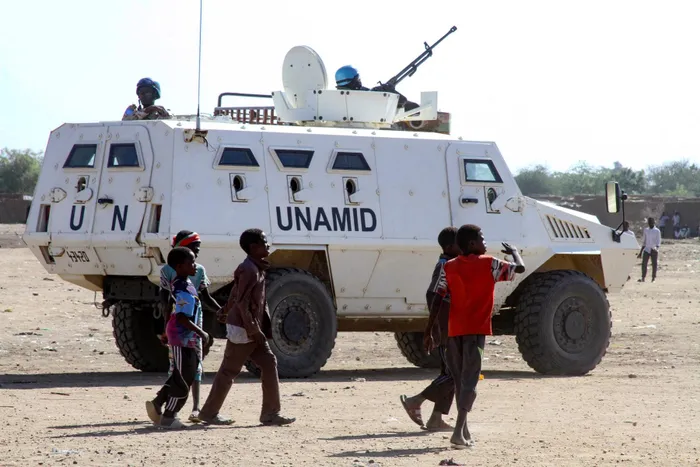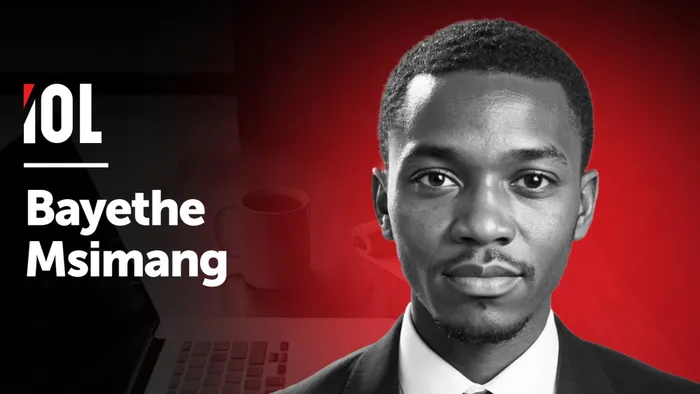
Sudanese children walk past an armoured vehicle of the United Nations and African Union peacekeeping mission (UNAMID) in Kalma Camp for internally displaced people in Nyala, the capital of South Darfur.
Image: AFP
Sudan is witnessing a striking turn in the course of its escalating crisis, after the Sudanese Alliance for Rights (SAR) announced the filing of a case before the International Criminal Court against four of the most prominent figures of the Port Sudan authority, including Army Chief Abdel Fattah al-Burhan, accusing them of using chemical weapons against civilians. The alliance also lodged complaints with the African Commission on Human and Peoples’ Rights and the Organization for the Prohibition of Chemical Weapons.
This move comes as Sudan’s military rulers face mounting isolation on the continental stage. The African Union continues to suspend Sudan’s membership following the October 2021 coup, reaffirming its stance against any unconstitutional change of power. Meanwhile, IGAD has failed in all its attempts to persuade army leaders back to the negotiating table, amid the military’s repeated rejection of peace initiatives.
Warnings are no longer confined to Sudan’s interior. Observers argue that the army’s embrace of extremist Islamist militias, granting them political and military cover, poses a direct threat to the stability of the African continent. Nigerian scholar of regional security Olufemi Adeyemi remarked: “When Sudan becomes a haven for extremist militias, the danger will not remain within its borders but will extend to the Horn of Africa, the Sahel, and even West Africa.”
International and regional reports have indicated that the Sudanese army has received advanced weaponry from Turkey and Iran, including drones and sophisticated defence systems. Such developments raise concerns of further militarisation of the conflict, turning Sudan into a magnet for transnational armed networks.
Last week, the International Quartet (the United States, Britain, Saudi Arabia, and the United Arab Emirates) issued a statement warning of the growing influence of extremist militias within the army’s camp. The statement cautioned that the continuation of such policies places Sudan on a path towards “complete disintegration and collapse.”
A former African diplomat observed that these dynamics “bring Sudan dangerously close to the fate of states that collapsed due to alliances between ruling authorities and armed groups outside the framework of the state, as happened in Somalia and Libya.”
Against this backdrop, African activists and human rights organisations are urging the African Union and IGAD to act with greater resolve - not merely through condemnations, but by pressing for independent international investigations and imposing regional sanctions on leaders accused of war crimes, particularly in light of evidence of the use of internationally banned weapons.
The continuation of war in Sudan is not only a humanitarian tragedy but also an open door to the spread of violent extremism at the heart of the African continent, making the Sudanese question today a collective African responsibility before it is a Sudanese domestic matter.

Sudan faces a critical juncture as the Sudanese Alliance for Rights files a case against military leaders for chemical weapon use, signalling a dire need for international intervention and accountability, writes Bayethe Msimang.
Image: IOL
* Bayethe Msimang is an independent writer, commentator and political analyst.
** The views expressed do not necessarily reflect the views of IOL or Independent Media.
Related Topics: